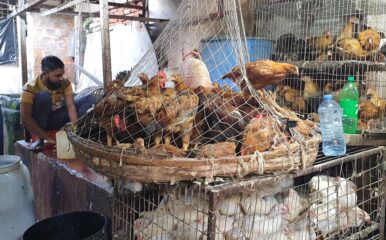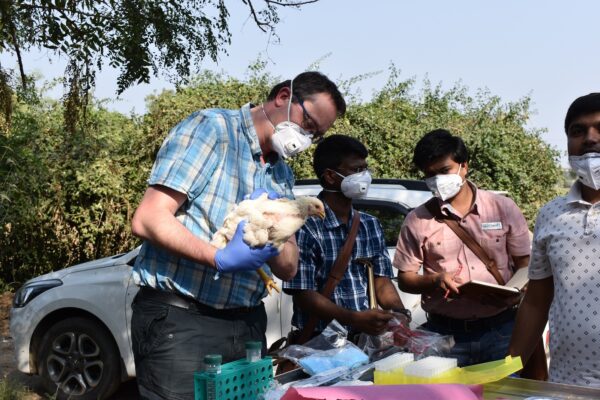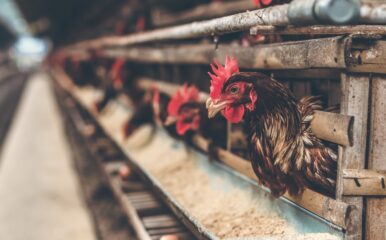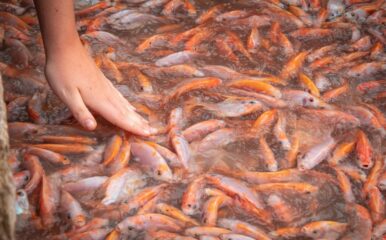
Genetic evolution in a common poultry parasite

Karine Gatellier
Collaboration type Research project
Aim Drugs known as ionophores, which though antimicrobials are not commonly classified as antibiotics, are used in poultry production to help maintain good bird health. This project aims to understand the contribution of ionophore use to antimicrobial drug resistance in poultry and assess whether the industry is ready for a ‘post-ionophore world’. It will do this by characterising genome evolution in the Eimeria genus of parasites which can cause the disease coccidiosis in birds, and exploring the impact of ionophore use on bacterial populations in chickens.
Problem addressed More than 280 tonnes of ionophores are used in UK poultry production every year, primarily to control parasites such as Eimeria. The global use of ionophores is unclear but it is likely to exceed 16,000 tonnes per annum. The use of ionophores can lead to the spread of antimicrobial resistance (AMR) genes which can undermine human as well as animal health, in particular via their flow into food chains and the environment. Public and legislative pressure is calling for reduced ionophore use, but the emergence of three new Eimeria species that can escape current vaccines and lead to reduced economic performance in poultry production risks prolonged use of these drugs. This project offers a holistic approach to understand Eimeria population biology and the consequences of ionophore use on bacterial populations as essential steps towards reducing reliance on ionophores in chicken production.
Focus country India, UK.
Project duration Three years
Funder BBSRC (UK) and DBT (India).
Partners Gujarat Biotechnology Research Centre, Kamdhenu University, Royal Veterinary College, London.
Principal investigators Professor Damer Blake, Professor Chaitanya G. Joshi.
GCRF One Health Poultry Hub link This collaboration was facilitated by One Health Poultry Hub networking. Analytic pipelines developed and validated in the One Health Poultry Hub will be developed further in the new project.
Further information dblake@rvc.ac.uk


